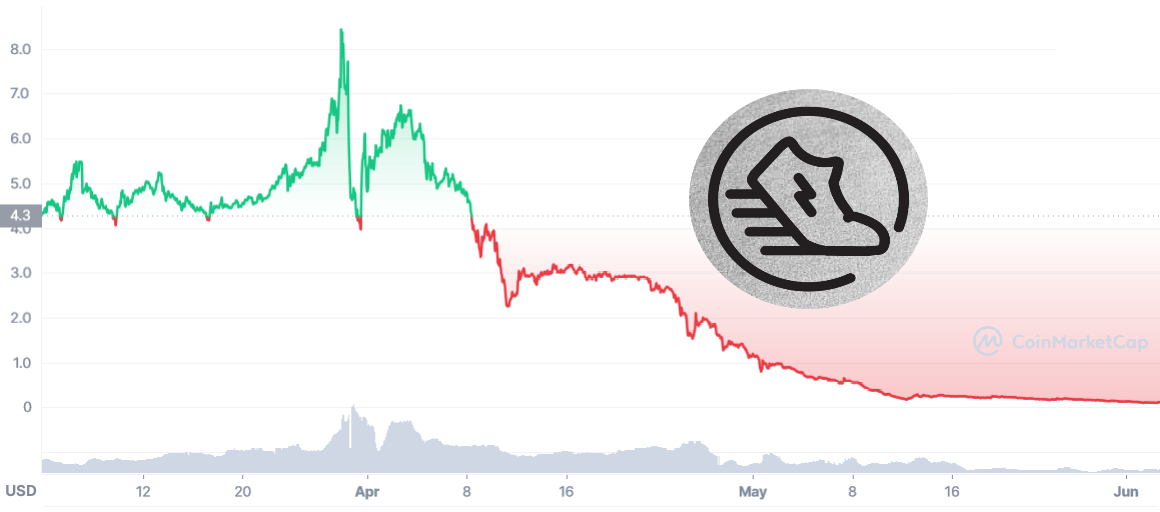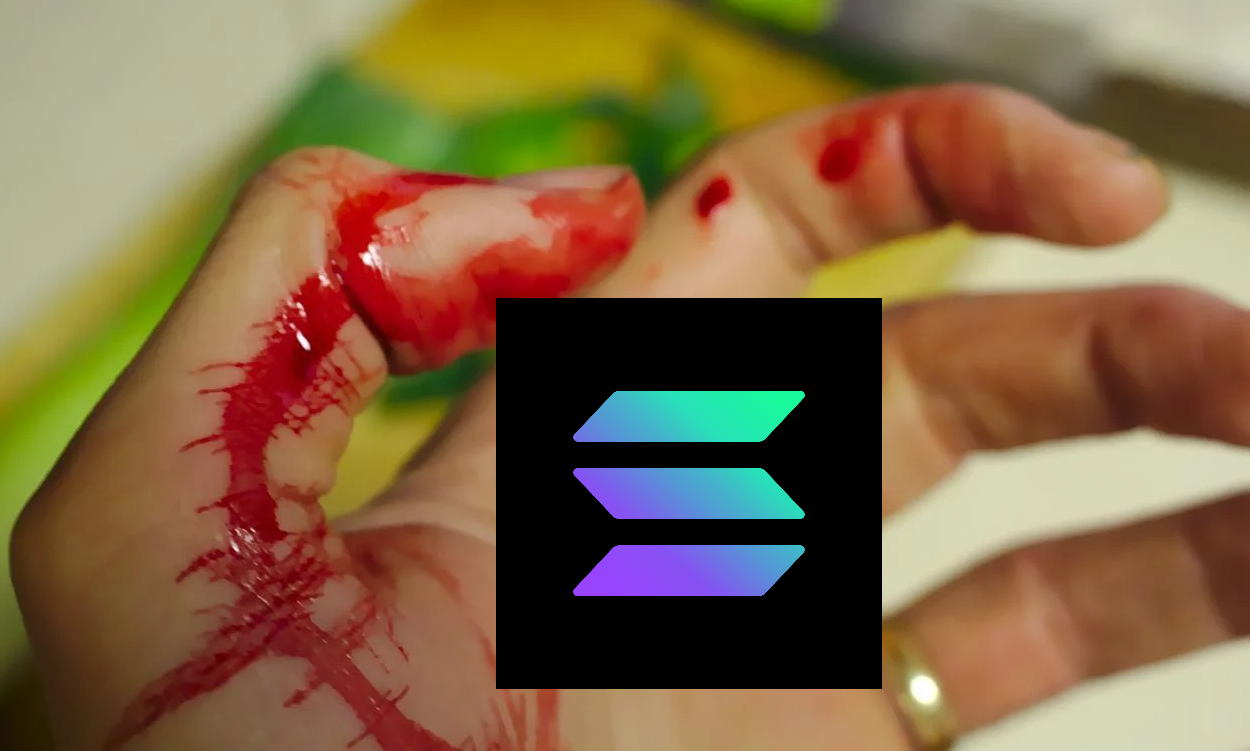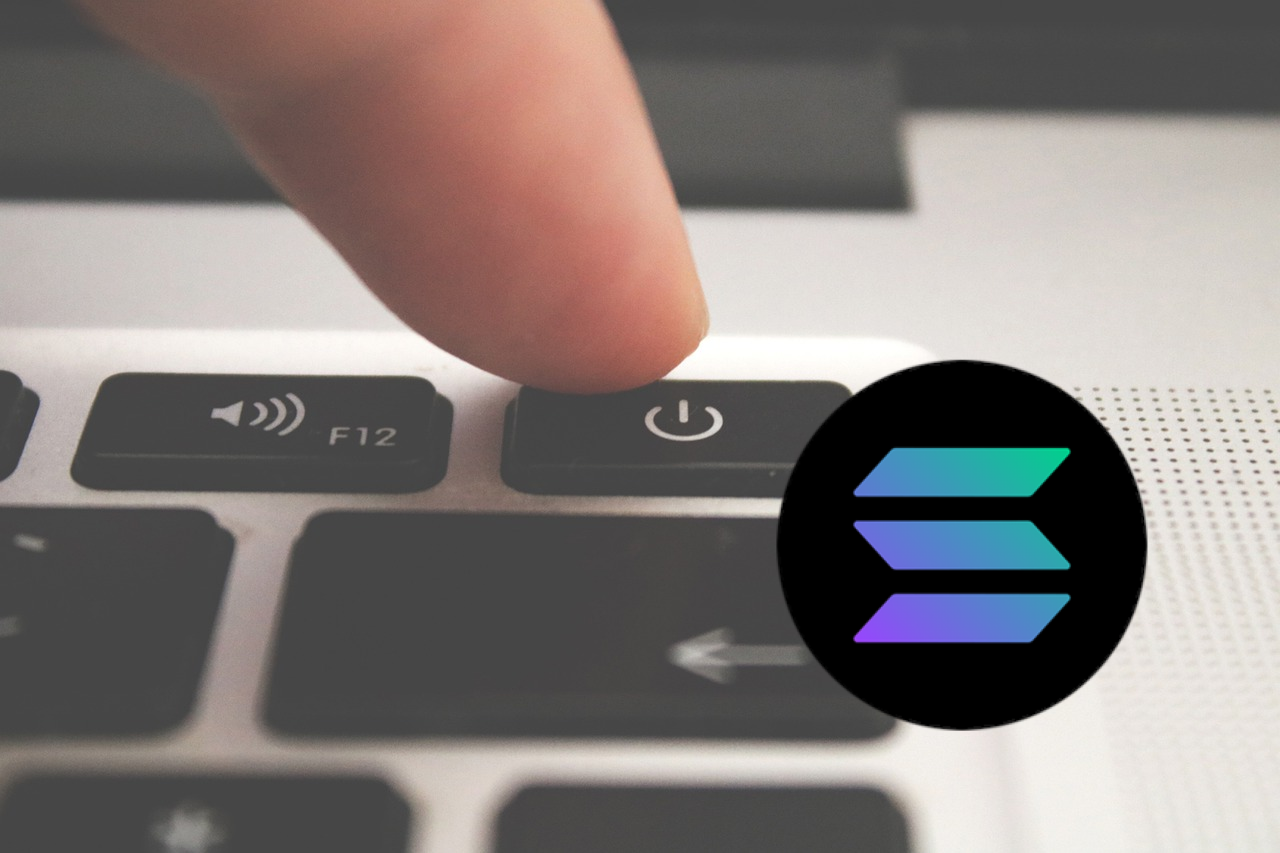This Popular Solana Token was at $6 in May, Now it's at $0.11

A cool idea, but...
Solana is a popular blockchain due to its low fees, high TPS, and popular dapps like Serum, but it is also notorious for its centralization and network shutdowns.
One Solana token in particular, Green Satoshi Token (GST), which powers the dapp StepN, has plummeted all the way from $6 in May to $0.11 at the time of writing this. StepN is a dapp which involves users purchasing different shoe NFTs and running in real life to earn GST.
Each shoe (common, rare, etc.) represents a different "activity level" and you run or walk for a given period of time to earn GST. The NFTs are selling for hundreds of dollars, and given the price slump of GST, it will take many months before users recoup their investment. Once users earn their GST, they can purchase more NFTs from the platform and swap with other tokens on the new DEX.
It has attracted a large audience since it is the first scheme in crypto to use physical exercise as an incentive to earn crypto. This may sound okay on paper, but given the price performance, there have been numerous problems. The software is still in public beta phase 4, but it may never make it to the final release stage if the token continues it decline to zero.
So what happened?
There was a network upgrade last month on June 6th, but it was far from smooth. As the upgrade was going through, malicious actors found holes in the protocol and initiated a series of DDoS attacks in very similar fashion to the Solana mainnet multiple times this year. The exploit was eventually patched the same day, but trust in the protocol has decreased since this.
Furthermore, the market downturn has caused investors to sell off their crypto assets to lessen the impact, and DeFi tokens like GST are among the highest risk, given the price slump. The network's governance token, GMT, also has dropped dramatically, from $3 in May, to $0.81.
Governance tokens are likely going to be the SEC's highest priority, since there is little to no utility involved, and they've already signaled intentions to declare them securities.





